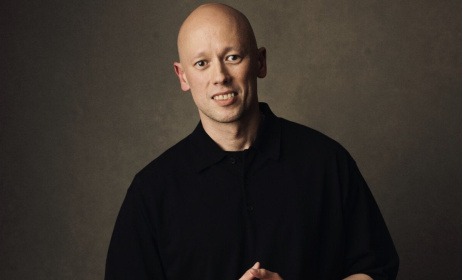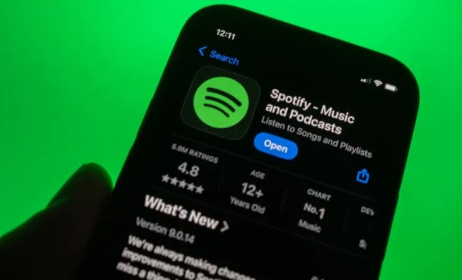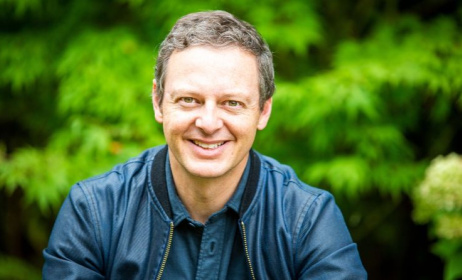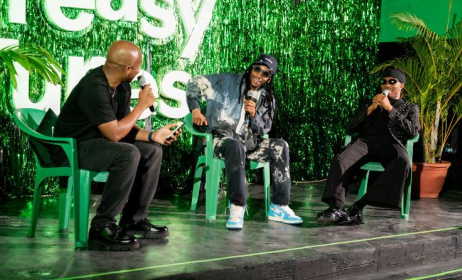US streaming royalty hike has ‘little bearing on Africa’
By Peter Choge and Butchie Seroto
On 1 July, a decision that may yet alter the digital music landscape was reached in the US after the Copyright Royalty Board (CRB) stood fast on its position to increase the royalty rate that streaming services pay to songwriters – from 10.5% to 15.1%.
 NMPA president David Israelite.
NMPA president David Israelite.
This follows a move by Spotify, Amazon and Google, among other companies, in 2019, to appeal a CRB ruling to increase songwriter and publisher royalty rates for streaming and other mechanical uses. The companies argued that the rates were unjustified.
A royalty rate refers to a share of the total streaming revenue that music streaming services pay to rightsholders. The US rate had not been adjusted for more than a decade despite a significant uptick in streaming revenues and a double-digit growth reported by the Big Three (Universal, Sony and Warner) over the past few years.
The battle for larger streaming rates was intensified ahead of a royalty rates review last year when the major music streaming services proposed the “lowest royalty rates in history.” This was according to National Music Publishers’ Association (NMPA) president David Israelite.
The CRB says the increase will apply for the years 2018 to 2022. The NMPA, which lobbied for the 2018 increase and fought against the streaming services’ appeal, welcomed the decision, saying songwriters need and deserve a significant raise from digital streaming services that profit from their work.
This is no doubt music to the ears of copyright holders in the US, who should already be looking forward to the next proceedings that will determine the royalty rate streaming services will pay them between 2023 and 2027.
But what does this mean for songwriters and music rightsholders in Africa? Music In Africa reached out to Spotify in sub-Saharan Africa to get a comment on how the US ruling will affect players on the continent but the company’s representatives said they could not divulge any information on the matter. They instead directed us to a statement issued by the Digital Media Association (DiMA), a US trade organisation that represented each of the music streaming services that appealed against the CRB’s 2018-22 rate decision.
In the statement, DiMA says it is committed to working with music publishing companies and the Mechanical Licensing Collective to facilitate the accurate distribution of the backdated royalties. DiMA president and CEO Garrett Levin said: “[The] decision reflects a significant increase in the royalties that will be paid to publishers. The work to give effect to these new rates will soon begin in earnest.”
Speaking on condition of anonymity, a major label representative in South Africa said the new development would only benefit African authors, composers and rightsholders for music streamed in the US.
“This only applies to composers and songwriters. So for example, a South African artist like Black Coffee who produces but doesn’t compose 100% of his music would only benefit from the increased streaming rate on his percentage for streams in the US,” the music executive said. “The change has no impact on his streams elsewhere in world. So in short, only artists doing streaming numbers in US would benefit.”
Nevertheless, the Composer Authors and Publishers Association (CAPASSO), a digital rights licensing agency based in Johannesburg, South Africa, is happy with the development. CAPASSO CEO Jotam Matariro is confident that the ruling will eventually benefit African composers. “It doesn’t really affect us directly because we are bound by individual laws in each country across Africa,” he said. “What it means is that when we negotiate in South Africa, we will consider the new developments in the other parts of the world.”
Matariro also took the opportunity to emphasise the importance of establishing split sheets in the music creation process to limit intellectual property disputes. “The residual cycle, which is the period in which collected royalties money will be shared, is limited to about 18 months, unlike the prescription period which is three or five years. What authors and composers don’t realise is that they don’t have a pension, but copyright is what keeps them going. This is the money that they can put aside in the form of savings. I know some of them usually ignore it because they think the money is too little or that it might get stolen.”
Last year, the UK government’s Department for Culture, Media and Sport Committee called for a “complete reset” of the streaming economy, with its chairperson, Julian Knight, saying “while streaming has brought significant profits to the recorded music industry, the talent behind it – performers, songwriters and composers – are losing out. Only a complete reset of streaming that enshrines in law their rights to a fair share of the earnings will do.”





























Comments
Log in or register to post comments